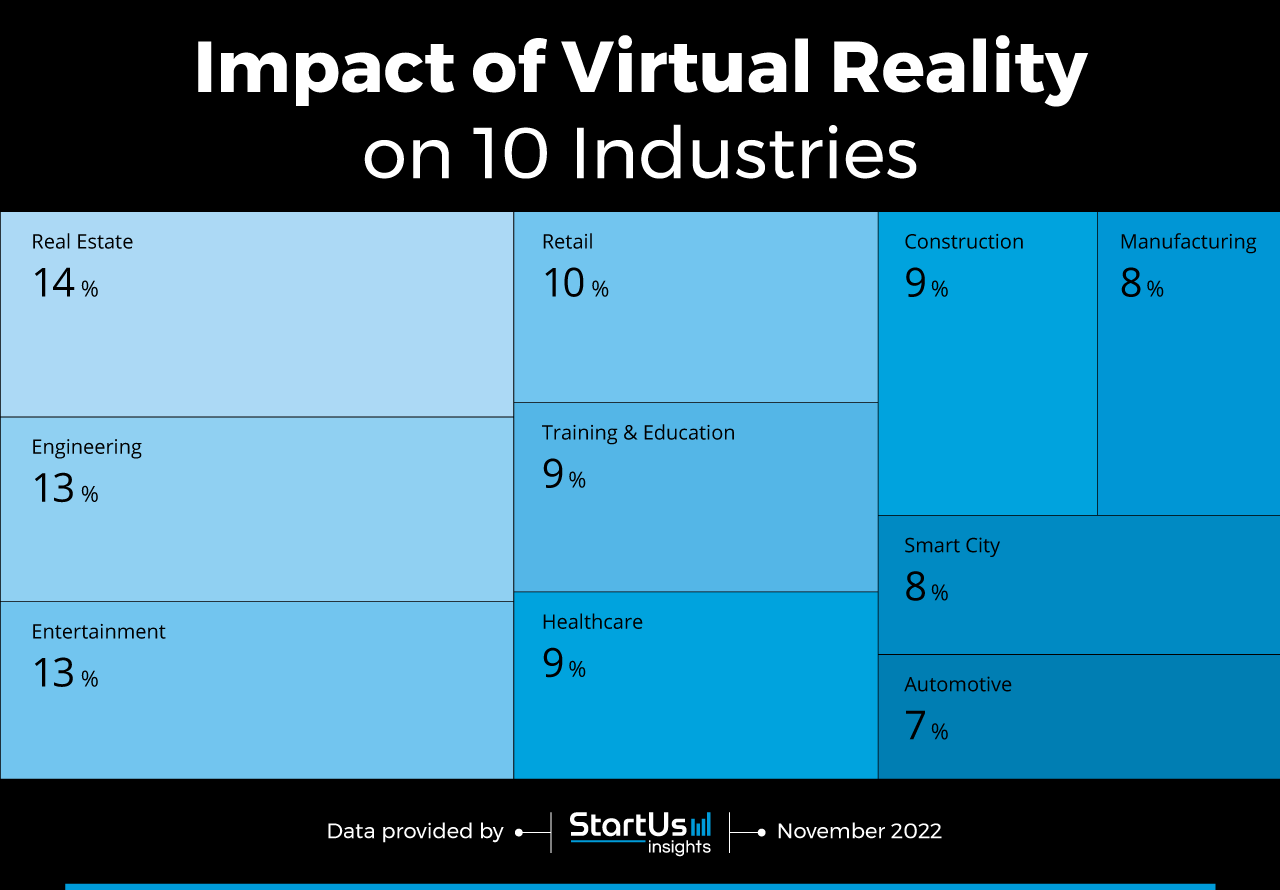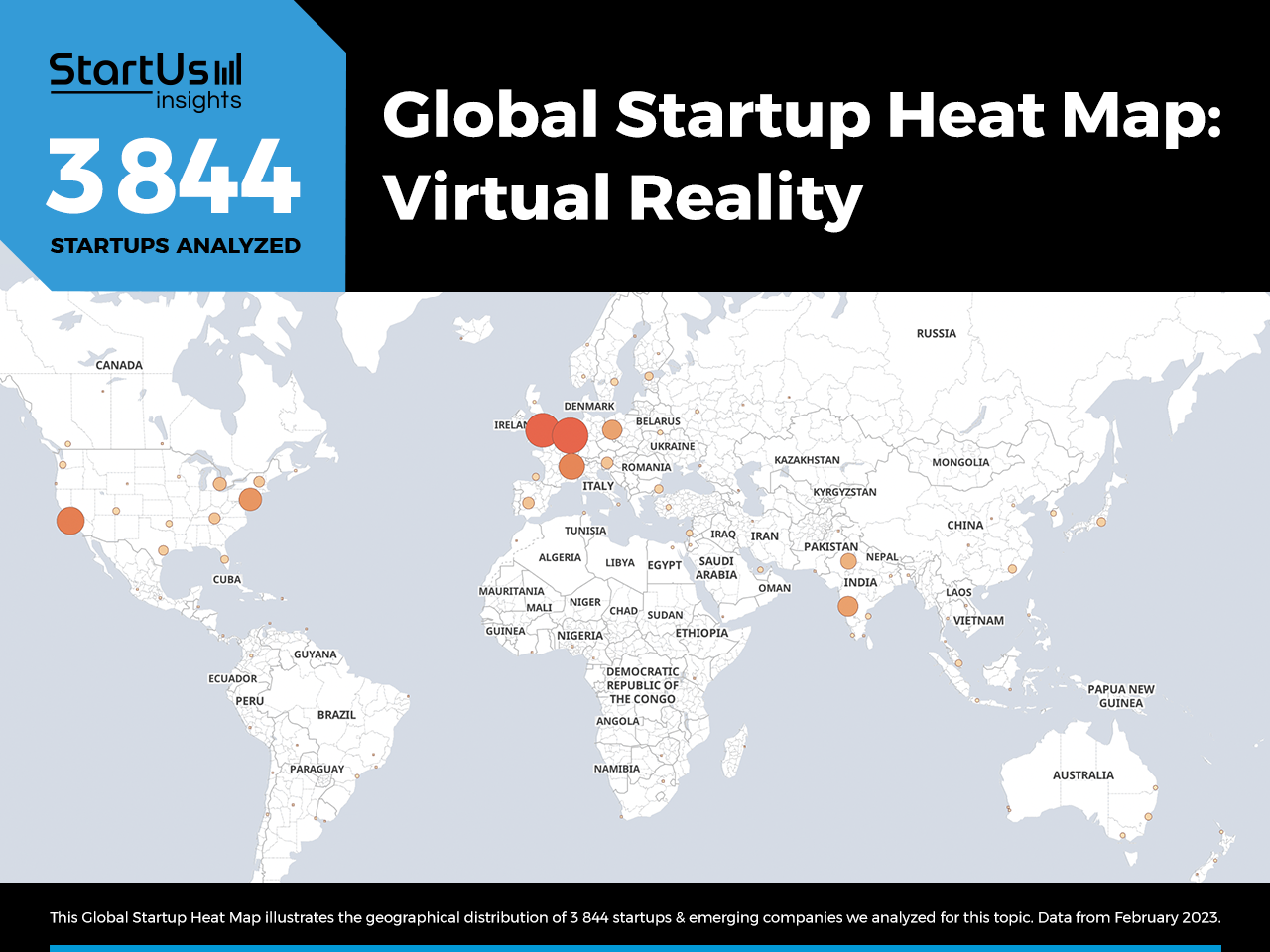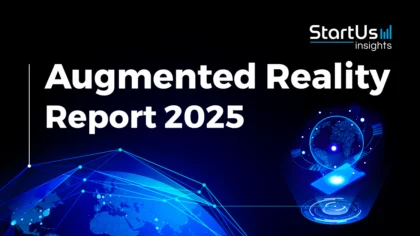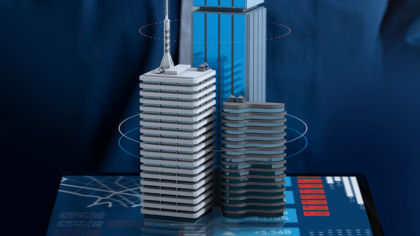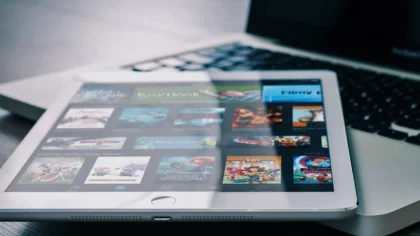Accelerate Productivity in 2025
Reignite Growth Despite the Global Slowdown
Virtual reality applications utilize advances in data acquisition, processing, and visualization to simulate or create virtual worlds. Businesses leverage this technology to create a better representation of their operations and enhance performance. In this data-driven report, we give you innovation insights based on our analysis of 3844 virtual reality startups & technologies so that you do not miss out on emerging solutions.
The 10 applications of virtual reality in this report allow companies to improve employee training, cross-team collaboration, and more. Read more to explore the impact of virtual reality on 10 industries and how they advance your business.
Tree Map reveals the Impact of Virtual Reality Applications on 10 Industries
The Tree Map below illustrates the impact of Virtual Reality on 10 industries in 2023 and 2024. The retail and real estate industries primarily use VR for product marketing and virtual tours. At the same time, engineers, manufacturers, including automotive, as well as city planners and building developers use virtual reality to improve design and planning.
VR applications also power immersive experiences in the entertainment sector by offering virtual concerts, cinemas, and more. The technology also improves the effectiveness of industrial training and education. Lastly, healthcare institutions offer VR-assisted medical training and therapies to enhance physician performance and patient management.
Global Startup Heat Map covers 3844 Virtual Reality Startups & Scaleups
The Global Startup Heat Map below highlights the global distribution of the 3844 exemplary startups & scaleups that we analyzed for this research. Created through the StartUs Insights Discovery Platform that covers 3 790 000+ startups & scaleups globally, the Heat Map reveals that Western Europe has a high concentration of virtual reality startups, followed by the US.
Below, you get to meet 10 out of these 3844 promising startups & scaleups as well as the solutions they develop. These 10 VR applications are hand-picked based on criteria such as founding year, location, funding raised & more. Depending on your specific needs, your top picks might look entirely different.
10 Applications of Virtual Reality in 10 Industries (2023-2024)
1. Real Estate
Virtual tours and staging of properties allow real estate companies to improve communication and conversion rates. Consequently, they use VR-assisted visualization and marketing platforms to achieve this. Leveraging VR also allows real estate developers to offer remote and virtual property showcases to prospects.
They utilize guided or interactive 3D virtual tours for this, replacing physical visits and saving time. Further, developers are able to market projects that are in progress through architectural visualization, enabling immersive experiences. These leads otherwise end up as no-shows or the customers eventually lose interest due to a lack of actual objects. Recent real estate VR applications also allow buyers and prospects to purchase properties during staging, increasing sales.
Converse Spaces develops VR for Property Visualization
BlueTick VR is an Indian VR startup that provides services for real estate developers. It creates VR walkthroughs and visualizations of upcoming property projects to help sell properties faster and at higher prices. It deploys a process of taking architectural drawings and designs and building out the structures in VR over just two weeks. Developers then use VR headsets to give prospective buyers an immersive experience of what the property will look like before it is built.
2. Engineering
Simulations and computer-assisted designing (CAD) are already a part of engineering workflows. Integrating VR allows engineers and designers to augment these existing solutions and transition to more interactive operations. For instance, combining VR and digital twins enables engineers to visualize and simulate numerous real-life situations.
Since this approach leverages historic and real-time data, they are able to accelerate design finalization and mitigate costly design revisions and prototyping. Additionally, VR improves safety training, collaborations, and learning for engineers. This, in turn, improves staff safety, saves costs, optimizes workflows, and enhances performance.
WeAre advances Digital Engineering
WeAre is a German startup that enables VR-powered digital engineering. The startup’s software, WeAre Rooms, enables collaborative engineering through virtual reality models. It further allows engineers to improve prototype design reviews, sales presentations, and remote collaboration. This, in turn, reduces development costs, speeds up the time to market, improves communication with customers and suppliers, and increases team motivation.
3. Entertainment
From virtual museums and theatres to immersive games and concerts, VR garners massive attention in the entertainment sector. The applications of VR allow content creators and entertainment companies to better convey their ideas and stories. Advances in immersive display and haptic technologies further make VR important for the entertainment sector.
Game developers are already monetizing this opportunity by offering VR-ready games for PCs and smartphones. Moreover, remote accessibility of VR-hosted entertainment events allows businesses to attract global audiences and increase sales. Cinemas are also offering unique VR content, Justice League VR for example, to attract more audiences.
IMVERSE provides Metaverse 3D Graphics
IMVERSE is a Swiss startup that offers metaverse 3D graphics. The startup’s proprietary volumetric pixel (voxel) rendering and simulation engine enables authentic holoportation. This live capture solution improves 3D telepresence through real-time and scalable simulations. Consequently, IMVERSE’s voxel engine finds applications in gaming and live entertainment events.
4. Retail
Virtual reality enables v-commerce in the retail sector by allowing customers to purchase products through eCommerce channels while interacting with them. This enhances customer journeys and provides retail businesses with high-value customer analytics. For example, Kellogg’s uses eye-tracking data from VR headsets to understand which items gather customer attention quickly and identify poor-performance products.
Further, VR allows retail companies to offer digital twins of their brick-and-mortar stores to enhance customer convenience and increase sales. VR also finds use in innovative marketing, merchandising, and advertising applications in the retail sector. This includes in-VR product placements, virtual customer encounters, and virtual store tours.
NexReality enables Meta-Commerce
NexReality is a US-based startup that offers a meta-commerce solution for retail businesses. The startup’s software as a service (SaaS) solution is a customer-to-manufacturer (C2M) technology that digitizes retail experiences. This allows eCommerce businesses to showcase their products and sell them. This eliminates the brick-and-mortar expenses and lack of inventory while improving customer satisfaction.
5. Training & Education
VR training applications drastically improve the efficiency of both industrial training and school education. Through immersive and interactive learning powered by virtual reality solutions, employees and students are able to better understand their curriculum. For example, modeling safety hazards in industrial settings allows workers to quickly grasp safety protocols, whereas simulations of human organs enable students to comprehend human biology.
VR reality further improves the overall learning curve of learners. When combined with digital twins, VR allows them to leverage virtual prototyping and enable collaborative engineering. In history, geography, and archeology studies, virtual presentations of historical sites and archeological findings improve learning experiences.
FotonVR makes VR Learning Kits
FotonVR is an Indian startup that develops VR learning kits for school education. The startup’s VR-based activities and virtual tours for physics, chemistry, and biology curricula improve student learning experiences. FotonVR also offers VR headsets along with content libraries. This allows educators and schools to offer interactive, gamified, and immersive content for students.

6. Healthcare
Virtual reality enhances patient management, medical training, and therapeutic outcomes in the healthcare sector. With realistic human body or organ models, physicians are able to effectively communicate the effects of diseases and explain how therapeutics treat them. This improves confidence in patients and their families. At the same time, simulated situations allow new medical professionals to practice surgical interventions and diagnose rare and common health issues.
Using 360-degree videos and virtual environments greatly improves the effectiveness of mental therapies for illnesses like post-traumatic stress disorder (PTSD). Lastly, VR-assisted physical therapies and pain management solutions enhance patient engagement in daily exercises after skin grafting surgeries and strokes.
Cognihab provides VR-Assisted Vision Therapy
Cognihab is an Indian startup that offers VR-assisted vision therapy for treating amblyopia, vergence, and hand-eye coordination. The startup’s vision therapy suite offers easy-to-follow graphic instructions for various exercises to ensure adequate eye muscle function. It also aids in identifying various visual issues like lazy eye treatment. Further, the startup develops VR solutions for stroke, spinal cord injury, and autism rehabilitation.
7. Construction
Visualization of building plans provides granular insights to improve construction design and planning. This enables builders to identify potential issues and risk factors before starting any building processes, saving costs and time. Since businesses are able to create virtual reality environments using building information modeling (BIM) data, the communication between project stakeholder become more effective and transparent.
Construction companies also leverage VR solutions to train their workers for high-risk environments. This enables them to mitigate safety hazards and improve worker safety. Further, BIM and digital twin-driven VR models provide real-time status of on-site assets and project progression. This data allows project managers to reduce labor costs, delays, and reworks.
HEGIAS facilitates Construction Planning
HEGIAS is a Swiss startup that improves construction planning. The startup’s cloud-based virtual building set allows architects to prototype buildings directly in VR. It also utilizes georeferenced 3D models to calculate dynamic light and shadows for visualization as well as enables them to compare multiple plans and alternative materials. This provides engineers with decision support and allows all stakeholders to review planned properties.
8. Manufacturing
The manufacturing sector deals with complex production lines and assets, which is why efficient industrial engineering is crucial in developing factories. Virtual reality combines all the necessary data to simulate final industrial setups and provides decision support for factory planning.
Moreover, VR-assisted product design allows engineers to mitigate time and cost-intensive reiterative prototyping and accelerate design for manufacturing (DFM). Consequently, this improves the efficiency of new product development workflows. Further, manufacturers utilize virtual environments to train employees on safety protocols and machine operations. As a result, they are able to better perform in production lines while minimizing errors.
Mazer creates VR-powered Manufacturing Digital Twins
Mazer is a Polish startup that offers VR-powered manufacturing digital twins. The startup’s platform allows manufacturers to create multi-space VR showrooms of factories or individual assets. Its real-time manufacturing data also enables them to simulate various production scenarios, aiding decision-making. Further, the platform allows offsite employees to offer remote technical assistance.
9. Smart City
Digital simulations of urban infrastructures, like water management systems and electric grids, provide city authorities and planners with optimization opportunities. Through VR, they are able to generate accurate city models with sensor, camera, and actuator data. This enables city management to ensure optimum space utilization, improve traffic management, and improve safety.
Apart from urban planning, cities use VR to train police officers in virtual environments. This allows novice officers to learn threat management and improve post-incident responses. At the same time, providing VR-assisted emergency medical training for healthcare workers in ambulances allows them to stabilize patient conditions while in transit.
pointreef improves City Planning
pointreef is a German startup that offers digital twins for city planning. The startup leverages high-resolution photogrammetry, 3D laser scans, and aerial photographs to create digital twins of cities. This data allows city planners and management to improve construction, traffic, and infrastructure planning.
10. Automotive
Rendering CAD models into VR virtualizations allows vehicle engineers to evaluate designs on real-world scales. This also allows automotive engineers to thoroughly analyze design parameters and avoid errors before physical prototyping. Consequently, VR speeds up design finalization and accelerates time to market. Additionally, auto manufacturers leverage virtual reality to simulate the interiors of vehicles for ergonomic analysis.
On the other hand, virtual representations of production and assembly lines provide auto manufacturers with improved visibility into processes. With digital twins and predictive analytics, they are able to further mitigate expensive production errors and quality issues. VR also provides training support for new employees and improves their performance once deployed on production floors.
SIMBOTT simplifies Automotive Welding Training
SIMBOTT is an Indian startup that offers VR-driven automotive welding training. The startup’s immersive simulations aid manufacturing and operations training for floor operators using factory digital twins. This includes maintenance operations, assembly operations, and quality checks. Additionally, the startup supports workforce skills and emergency safety training. This allows auto manufacturers to avoid human errors and defects while improving industrial safety.
Discover All VR Applications & Startups
The cost of VR hardware and limited software availability hinder the adoption of virtual reality across industries and the masses. Therefore, innovations in cost-effective hardware, high-performance computing (HPC), and 5G will improve the performance and adoption of VR. Startups are also offering no-code VR content development platforms that allow creators and businesses to quickly develop 3D models. Get in touch to identify specific virtual reality startups & solutions that advance your business!

